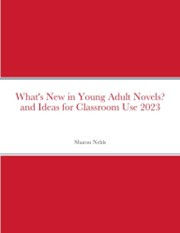Just when we thought the coronavirus was our biggest problem, police brutality against minorities is back in the news, as people all over the country are taking to the streets to protest several recent incidents. Acknowledging Americans' rights to protest injustices, it is vital that teaching social awareness of a variety of issues be incorporated into our curriculums. According to Harvard Medical School's Robert Selman whose research focused on children developing social awareness, “Good children's literature
not only raises moral dilemmas, but also generates the feelings that are associated
with situations where moral conflict and confusion exists.” He suggests that
through reading about social conflict students can vicariously experience the
resolution of problem situations. Three new YA novels provide the opportunity to discuss several societal problems. The Voting Booth by Brandy Colbert focuses on an African American teen activist who is passionate about people voting to enact social change. Don't Read the Comments by Eric Smith explores sexism and racism in the global gaming community. We Didn't Ask for This by Adi Alsaid introduces Marissa Cuevas who chains herself to the doors of her school during a student lock-in, to force environmental changes at the school.
In The Voting Booth Marva Sheridan, an African American teen activist, meets Duke Crenshaw on Election Day, when he is turned away from voting. Marva is ardent about politics and has worked hard to make sure everyone gets the opportunity to vote. She spends the day helping him work out his registration issues, so that he can get to a drumming gig that night. As they get to know each other, they share their struggles with racial tensions. Her white boyfriend refuses to vote and Duke is still trying to cope with his radical brother's death in a drive by shooting. Meanwhile, Marva's cat Selma, an internet star known as Eartha Kitty, has gone missing. Her many followers get involved in the search, outing Marva's role in creating the site. As the day progresses, Marva and Duke's problems bring them closer together. The story is told in alternating first-person narration, allowing readers to easily sympathize with the two teens. With the 2020 election ahead, there is great concern about adequate polling places, especially for minorities. After the Supreme Court dismantled the Voting Rights Act of 1965 and with concerns about voters' health causing the shutdown of many voting places, people might find themselves struggling to cast their vote if mail-in voting is not allowed. This timely novel sheds light on the issue, as well as how important it is to make one's voice heard through voting.
Inspired by Gamergate, the real life controversy about sexism in the video game culture, Don't Read the Comments introduces Divya Sharma, a female gamer with valuable sponsors and a strong following on Glitch, a streaming service that allows others to watch her play Reclaim the Sun. She is attacked online by trolls known as Vox Populi, which then turns into real life harassment. Aaron Jericho meets Divya online, when he defends her against the trolls while playing Reclaim the Sun. Although Aaron enjoys gaming, he prefers to create narratives to go with his friend's gaming art, which they hope to market through a rising Indie game producer. He is thrilled to get publicity on Divya's site and wants to meet IRL, but she is understandably careful about revealing her identity. Her home address is revealed and both her mother and Divya's gaming partner are attacked. With Game Con coming up, Divya realizes she may need to get the authorities involved before the doxing (broadcasting private information) becomes life threatening. This complex examination of sexism and racism in gaming, celebrates family and friendship, as well as the strength and determination it takes to stand up to bullies.
We Didn't Ask for This looks at activism and protest from different points of view. The much anticipated "Lock-In Night" at the elite Central International School in an unnamed country, takes on a political tone when Marisa Cuevas and her cronies, chain themselves to the doors of the school, holding attendees hostage until 30 environmental changes are enacted. At first students are furious that their night has been ruined. Gay charismatic Peejay Singh, who was in charge of throwing the party, wants to live up to the example set by his brother who previously organized an epic Lock-In, but is now at the hospital in a coma. Kenji Pierce, whose father is the developer in charge of one of the projects Marisa is protesting, is devastated when his improv team's showcase is put on hold. However, he befriends Celeste Rollins, a black American newcomer to the school and introduces her to the joys of improv. Malaysian decathlete Amira Wahid hopes to be the first female to win the Lock-In decathlon, but finds herself falling in love with Marisa. As people attempt to thwart Marissa's mission and the Lock-In stretches on, the three join a group of Protectors that try to help Marisa meet her objectives. Although the story explores many ecological issues, it also addresses identity and finding a sense of belonging and pursuing dreams.
Wednesday, July 1, 2020
Subscribe to:
Posts (Atom)

